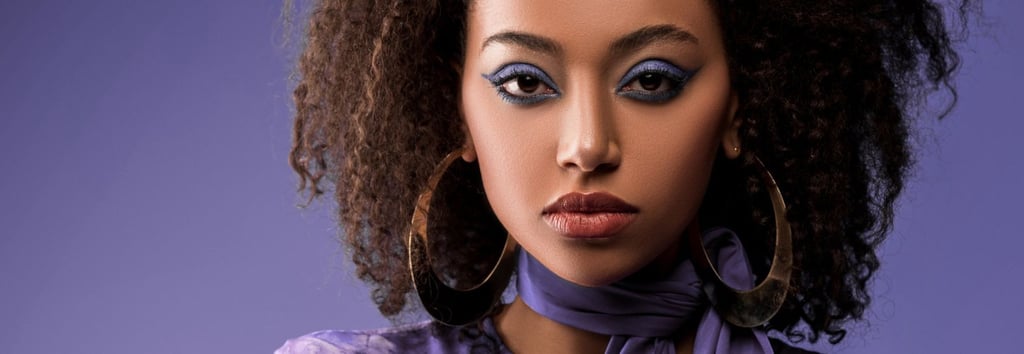Hair Transplants for Black Women
Hair Transplants for Black Women
Ashley Crowne
2/25/20233 min read


Hair Transplants for Black Women: What You Need to Know
For many women, hair is a symbol of beauty, identity, and self-expression. For Black women in particular, hair has deep cultural significance, often representing both personal style and heritage. However, hair thinning and hair loss affect Black women just as they do other groups—and sometimes in unique ways. With advances in modern hair restoration techniques, more Black women are exploring hair transplant surgery as a long-term solution to restore fullness and confidence.
What is so incredibly important is that you must find a hair restoration clinic that SPECIALIZES in hair transplants for black women as their gorgeous hair requires FAR more skill in surgery to provide the desired outcomes! The great news is that Cosmedic Express is THE EXPERTS in this area and we know the outcomes are nothing less than exceptional!! Shop around and you will always end up coming to Cosmedic Express!
Why Do Black Women Experience Hair Loss?
Hair loss in Black women can result from a combination of genetic, medical, and styling factors. Some of the most common causes include:
Traction Alopecia – Caused by tight hairstyles such as braids, weaves, ponytails, and locs that pull on the hair follicles over time. This is one of the most common types of hair loss among Black women.
Central Centrifugal Cicatricial Alopecia (CCCA) – A condition more prevalent in Black women that results in scarring and permanent hair loss, typically starting at the crown.
Hormonal or medical conditions – Thyroid disease, PCOS, and postpartum changes can contribute to thinning.
Genetics – Like women of other backgrounds, Black women may also experience hereditary female pattern hair loss.
Identifying the root cause is essential before considering surgery. In some cases, medical treatments or changes in styling practices can help slow or stop further loss.
Unique Considerations for Black Hair
Black hair has unique structural characteristics that must be carefully considered in hair transplantation:
Curved Follicles – Black hair follicles are often curved beneath the skin, which requires specialized techniques to extract and implant without damaging the grafts.
Texture Matching – A skilled surgeon ensures that transplanted hair blends seamlessly with the natural curl pattern.
Scarring Tendencies – Some Black women may be more prone to keloids or noticeable scarring, which makes choosing the right method and surgeon critical.
These factors highlight the importance of finding a hair restoration specialist experienced with Black hair types.
Hair Transplant Methods
There are two primary surgical methods used for hair restoration:
Follicular Unit Transplantation (FUT)
A strip of scalp is removed from the back of the head, and hair follicles are divided into grafts for implantation.
This method allows many grafts in one session but leaves a linear scar, which can be hidden by longer hairstyles.
Follicular Unit Extraction (FUE)
Individual follicles are extracted and transplanted one by one.
Scarring is minimal and scattered, making it more appealing for those who wear shorter styles.
FUE requires a surgeon skilled in working with tightly coiled hair to ensure graft survival.
Both methods can be highly effective when tailored to the patient’s needs.
The Procedure and Recovery
Hair transplant surgery is typically done under local anesthesia and can take several hours depending on the number of grafts required. Patients return home the same day.
Initial Recovery – Mild swelling and scabbing appear in the first week.
Shedding Phase – Transplanted hair often sheds within weeks; new growth usually begins around 3–4 months.
Full Results – Most women see final results within 9–12 months, with thicker, natural-looking hair.
Benefits of Hair Transplants for Black Women
Permanent Solution – Transplanted hair is resistant to many causes of hair loss.
Natural Results – When performed by an experienced surgeon, transplanted hair mimics natural texture and growth patterns.
Confidence Boost – Restoring hairlines and fullness can dramatically improve self-image and emotional well-being.
Style Flexibility – Women often enjoy the freedom of wearing more natural hairstyles without relying on wigs or extensions.
Risks and Considerations
While generally safe, hair transplant surgery does carry risks:
Scarring or keloid formation in susceptible individuals.
Uneven growth if performed by an inexperienced surgeon.
Cost – The procedure is typically not covered by insurance.
Additionally, not all types of hair loss are suitable for surgery. For example, advanced scarring alopecia may limit transplant success. A thorough consultation and scalp examination are essential.
Non-Surgical Options to Complement Transplants
Even with surgery, many Black women benefit from combining treatments:
PRP (Platelet-Rich Plasma) Therapy – Stimulates healing and growth around transplanted hair.
Low-Level Laser Therapy (LLLT) – Encourages stronger, healthier hair growth.
Lifestyle Adjustments – Reducing tight hairstyles, improving nutrition, and lowering stress support long-term hair health.
Final Thoughts
Hair transplant surgery for Black women offers hope to those struggling with thinning edges, bald spots, or traction alopecia. With modern technology and skilled surgeons familiar with the unique characteristics of Black hair, women can achieve natural, permanent results.
If you’re considering this option, the most important step is to consult a board-certified hair restoration specialist who has proven experience with Black women’s hair. With the right plan, you can restore not just your hairline but also your confidence.
Excellence
Leading cosmetic procedures with global recognition and value.
We Are ISO 27001 Certified
Info@CosmedicExpress.com
© 2017 - 2025. All rights reserved.


